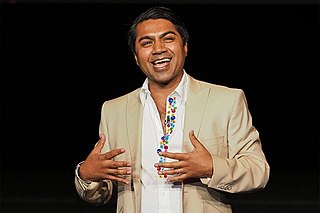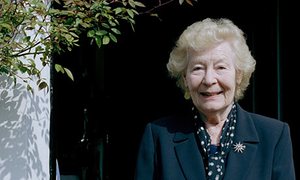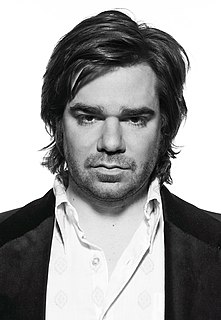A Quote by Richard Dawkins
I think Douglas [Adams] is writing with an eye to irony for adults at the same time as entertaining children.
Related Quotes
I think it crucial to recognize that you can't straightforwardly "adapt" Douglas Adams. Douglas's genius was uniquely his own. What I've tried to do here, and in every other version, is to be true to the character and the Adams' tone and approach to narrative, his unique brand of word-play and "idea-play" humor.
Douglas Adams did not enjoy writing, and he enjoyed it less as time went on. He was a bestselling, acclaimed, and much-loved novelist who had not set out to be a novelist, and who took little joy in the process of crafting novels. He loved talking to audiences. He liked writing screenplays. He liked being at the cutting edge of technology and inventing
On the craft level, writing for children is not so different from writing for adults. You still have to have a story that moves forward. You still have to have the tools of the trade down. The difference arises in the knowledge of who you're writing for. This isn't necessary true of writing for adults.
I think when people mean that Discworld books have become darker they really mean the series is growing up. In 'The Colour of Magic' most of the city is set alight. It's a joke, in much the same way that the Earth is destroyed almost at the start of Douglas Adams's 'The Hitchhikers Guide to the Galaxy.'





































